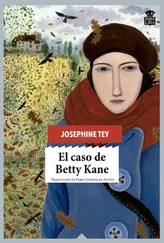The interior of the house, too, had the Arab bareness and space without any suggestion that a piece of the East had been transported to London. Beyond the figure of the manservant who answered his ring, he could see the clean walls and the rich carpet; an idiom adapted, not a décor transposed. His respect for Heron Lloyd mounted.
The manservant appeared to be Arab; an Arab of the towns, plumpish, lively-eyed and good-mannered. He listened to Grant’s inquiry and asked in a gentle too-correct English if he had an appointment. Grant said no, but that he would not detain Mr Lloyd more than a moment. Mr Lloyd could be of some help in giving information connected with Arabia.
‘If you will come in, please, and wait for a moment, I ask.’
He ushered Grant into a tiny room just inside the front door which, judging from its limited space and scanty furnishing, was used for just this purpose of waiting. He supposed that someone like Heron Lloyd must be used to strangers appearing on his doorstep to claim his interest or help. Even perhaps just to ask for his autograph. A realisation that made his own intrusion less deplorable.
Mr Lloyd had not debated his desirability very long, it seemed, for the man was back in a few moments.
‘Will you come, please? Mr Lloyd will be very happy to see you.’
A formula, but such a pleasant formula. How good manners did cushion life, he thought as he followed the man up the narrow stairs and into the big room that occupied the whole of the first floor.
‘Mr Grant, hadji ,’ said the man, standing aside to let him come. Grant caught the word and thought: That is the first piece of chi-chi: Englishmen don’t make the pilgrimage to Mecca, surely.
Watching Heron Lloyd as he was made welcome, Grant wondered whether he had first thought of going to desert Arabia because he looked like a desert Arab, or whether he had come to look like a desert Arab after years in desert Arabia. Lloyd was the Arab of the desert idealised to the nth. He was, Grant thought with amusement, the Arab of the circulating libraries. It was across the saddle of Arabs like Heron Lloyd that blameless matrons in the Crescents and Drives and Avenues had been carried off to a fate worse than death. The black eyes, the lean brown face, the white teeth, the whip-lash body, the delicate hands, the graceful movements: it was all there, straight out of Page Seventeen of Miss Tilly Tally’s latest (two hundred and fifty-four thousand, new printing next week). Grant had to remind himself forcibly that he must not judge on looks.
For this man had done journeys that had made history in the world of exploration, and had written about them in English which, even if a little lush (Grant had bought a copy of his latest in Scoone yesterday afternoon) was nevertheless recognisable as literature. Heron Lloyd was no parlour sheik.
Lloyd was wearing orthodox London clothes and a manner to match. If one had never heard of him one would accept him as a Londoner of the well-to-do professional classes. One of the slightly more flamboyant classes, perhaps; an actor, or conceivably a Harley Street consultant or a Society photographer; but a Londoner of the orthodox professions, when all was considered.
‘Mr Grant,’ he said, shaking hands. ‘Mahmoud says that I can be of service to you.’
His voice surprised Grant. It had no body and a faintly querulous tone that had nothing to do with the sense of the words or their mood. He took a box of cigarettes from the low coffee table and offered them. He did not smoke himself, he said, because he had adopted Mohammedan customs during his long life in the East, but he could recommend the cigarettes if Grant cared to try something that tasted a little out of the ordinary.
Grant took the cigarette, as he took every new experience and sensation, with interest, and apologised for his intrusion. He wanted to know whether a young man called Charles Martin had applied to him at any time within the last year or so for information about Arabia.
‘Charles Martin? No. No, I don’t think so. Many people do come, of course, to see me about one thing and another. And I cannot always remember their names afterwards. But I think I should remember anyone with that simple name. You like that tobacco? I know the very half-acre where it is grown. A beautiful place that has not changed since Alexander the Macedonian passed that way.’ He smiled a little and added: ‘Except, of course, that they have learned how to grow this weed. The weed, I understand, goes very well with a not too dry sherry. Another of the grosser indulgences that I avoid; but I shall have a fruit drink to keep you company.’
Grant thought that the desert tradition of hospitality to the stranger must come a little expensive in a London where you were a celebrity and all and sundry were free to drop in. He noticed that the label on the bottle that Lloyd had picked up was a guarantee as well as an announcement. It seemed that Lloyd was neither a pauper nor a piker.
‘Charles Martin was also known as Bill Kenrick,’ he said.
Lloyd lowered the glass which he was about to fill, and said:
‘Kenrick! But he was here only the other day. Or rather, when I say only the other day, I mean a week or two ago. Quite lately, anyway. Why should he have an alias?’
‘I don’t know that myself. I am making inquiries about him on behalf of his friend. He was due to meet his friend in Paris at the beginning of March. On the 4th, to be exact. But he didn’t turn up. We have discovered that he died as the result of an accident on the very day that he should have turned up in Paris.’
Lloyd put the glass slowly down on to the table.
‘So that is why he did not come back,’ he said in that querulous voice that did not mean to be querulous. ‘Poor boy. Poor boy.’
‘You had arranged to see him again?’
‘Yes. I thought him charming and very intelligent. He was bitten with the desert—but perhaps you know that. He had ideas about exploring. A few young men still have. There are still the adventurers, even in this hedged and garnished world. Of which one must be glad. What happened to Kenrick? A car smash?’
‘No. He had a fall on a train and fractured his skull.’
‘Poor wretch. Poor wretch. A pity. I could have supplied the jealous gods with a dozen more expendable in his place. An atrocious word: expendable. The expression of an idea that would not even have been conceivable a few years ago. So far have we progressed towards our ultimate barbarism. Why did you want to know if the Kenrick boy had come to see me?’
‘We wanted to pick up his trail. When he died he was masquerading as Charles Martin, with a complete set of Charles Martin’s papers. We want to know at what stage he began to be Charles Martin. We were almost certain that, being bitten by the desert, he would come to see some authority on the subject in London, and since you, sir, are the ultimate authority we began with you.’
‘I see. Well, it was most certainly as Kenrick, Bill Kenrick I think, that he came to see me. A dark young man, very attractive. Tough, too, in a nice way. I mean, good manners covering unknown possibilities. I found him delightful.’
‘Had he come to you with any definite plans? I mean, with a specific proposition?’
Lloyd smiled a little. ‘He came to me with one of the commonest of all the propositions that are habitually put to me. An expedition to the site of Wabar. Do you know about Wabar? It is the fabled city of Arabia. It is Arabia’s “cities of the plain”. How that pattern does repeat itself in legend. The human race feels eternally guilty when it is happy. We cannot even remark on our good health without touching wood or crossing our fingers or otherwise averting the gods’ anger at mortal well-being. So Arabia has its Wabar: the city that was destroyed by fire because of its wealth and its sins.’
Читать дальше












